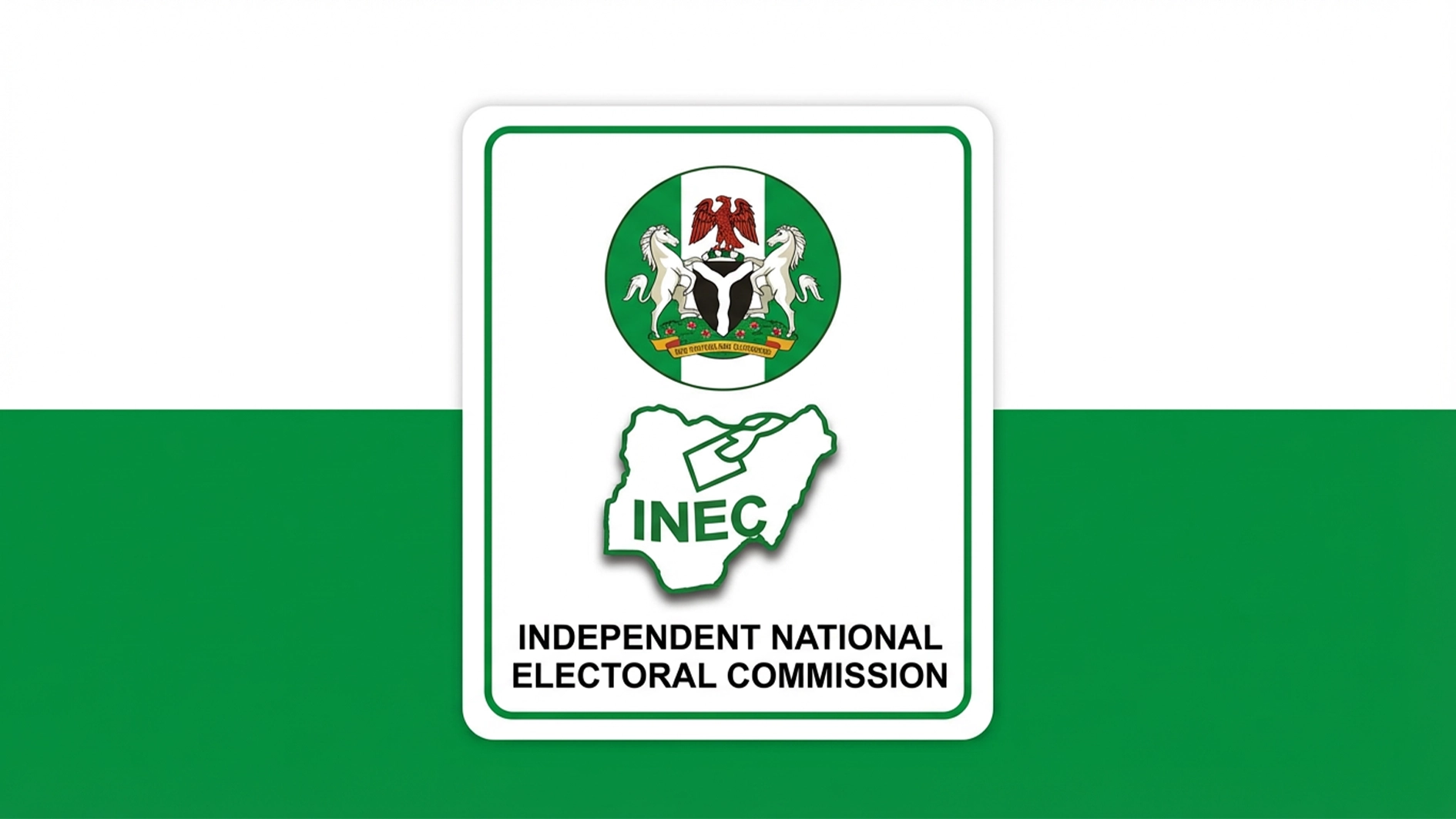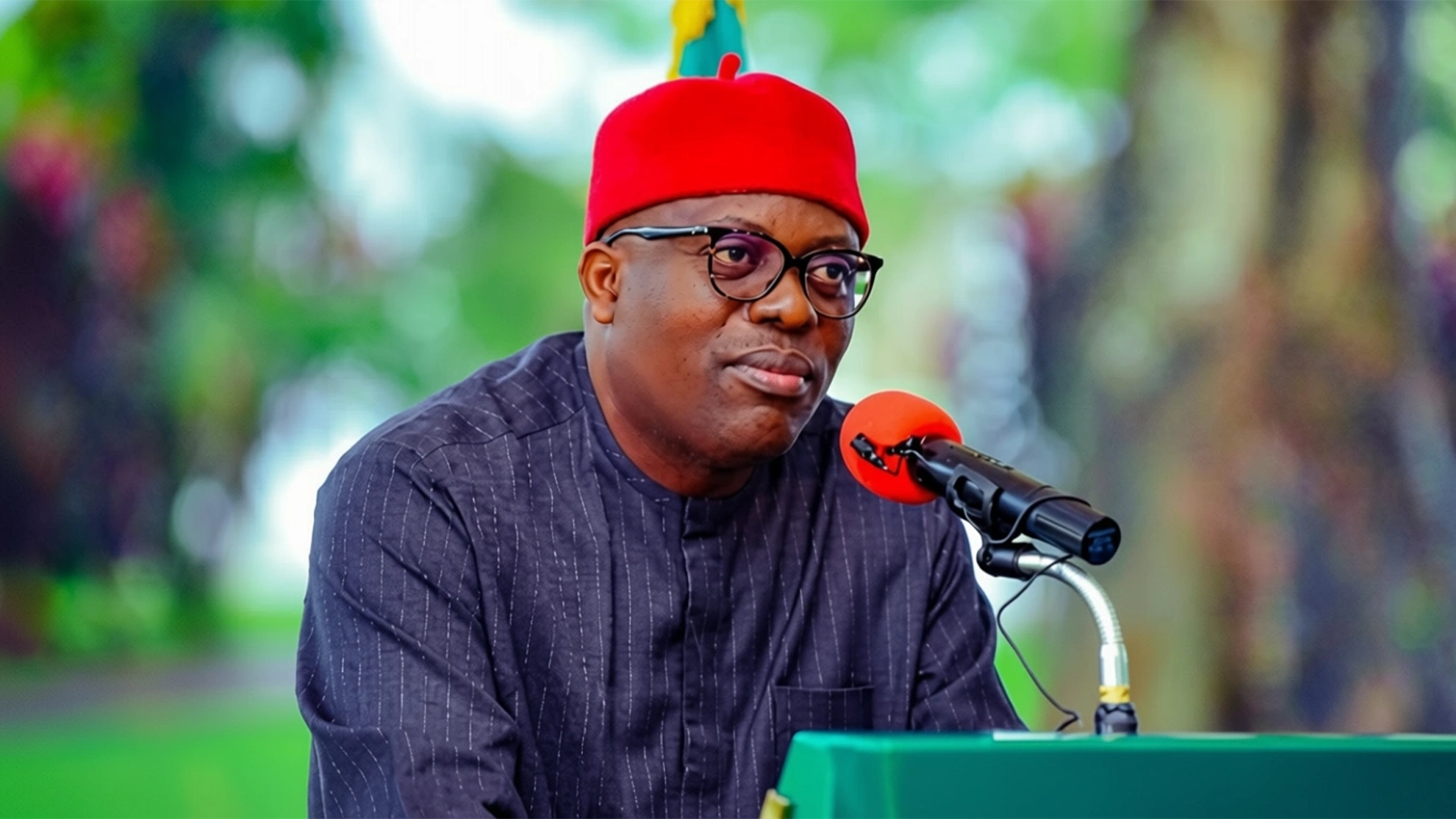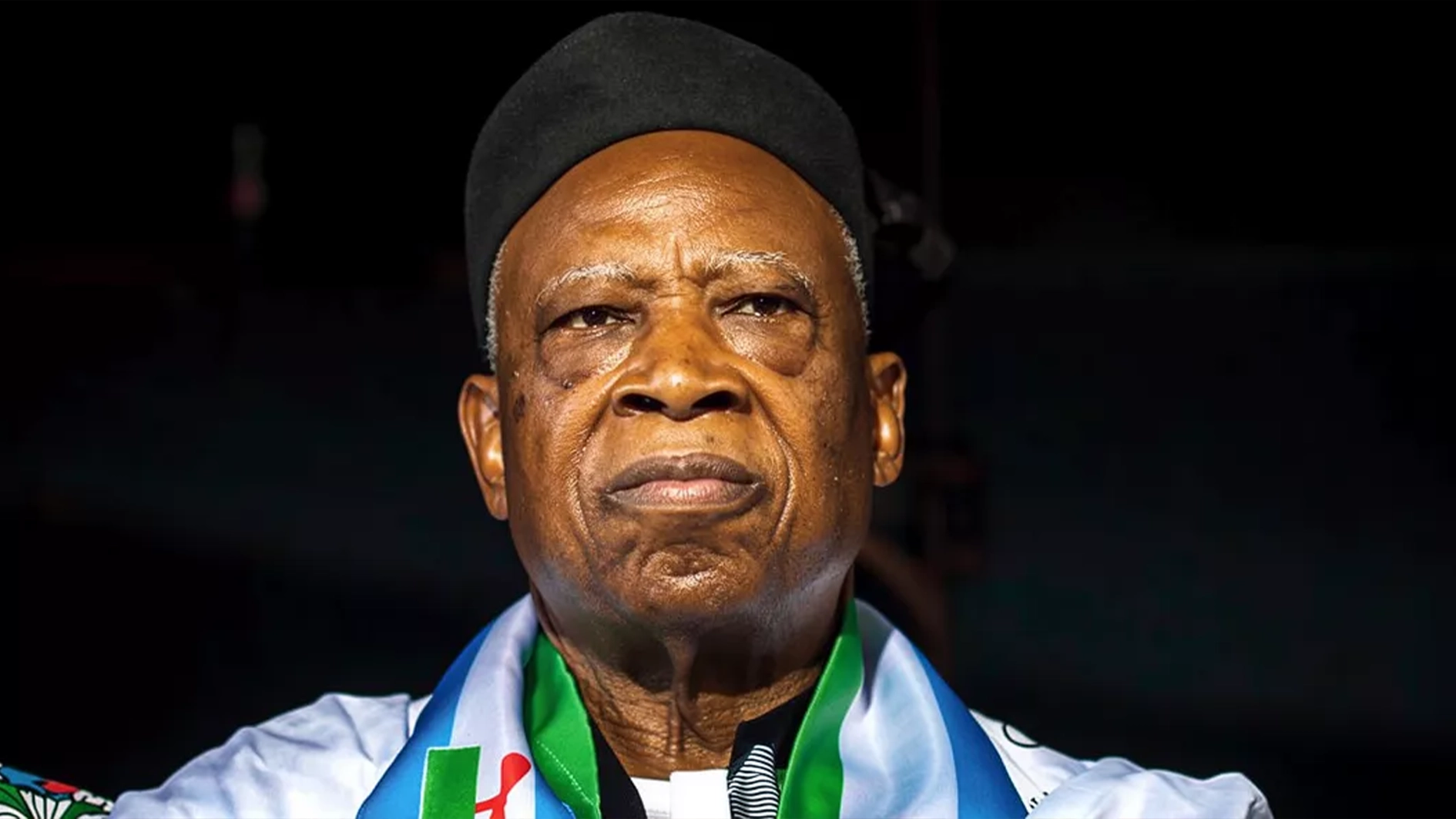
PHOTO: Twitter/BashirAhmaad
The road to Aso Rock is long, expensive, and exhausting. It is chaotic, volatile and unpredictable. It also has a mind of its own. When micro-managed as in Ibrahim Babangida’s transition programme, it descends into chaos; when macro-managed as in Goodluck Jonathan’s 2015 election, it delivers popular candidates.
National elections have always presented the country with something of a quagmire. It is a math problem; a question of numbers say far right Northern politicians. It is a political problem – with all attendant issues of accommodation, peace, justice, equity, and progress. It is a problem that has been solved in different ways, but never resolved.
The real reason behind it is known but it would take too much efforts, too much horse trading, give-and-take or significant changes to arrive at a permanent solution. Inability of any group to win decisive victory in national polls has led to several patchwork, hodgepodge, solutions. Tribal, religious, and regional differences hindered the formation of a truly national Nigerian political party in Nigeria.
Before 1966, the major parties were the Northern People’s Congress (NPC), overwhelmingly dominant in the Northern Region and possessing a plurality in the federal House of Representatives; the National Council of Nigerian Citizens (NCNC), dominant in the Eastern Region and junior partner in coalition with the NPC in the federal House of Representatives; and the Action Group, majority party in the Western Region and the leading opposition group in the federal legislature.
The first alliance between major parties at the centre was after 1959 elections when the NCNC joined in a coalition with the NPC to form the federal government. The December 1964 elections were contested by two political alliances: the Nigerian National Alliance (NNA), led by Sir Ahmadu Bello, premier of the Northern Region, and the United Progressive Grand Alliance (UPGA), led by Michael Okpara, premier of the Eastern Region.
The NNA comprised the NPC, the Western-based Nigerian National Democratic Party, and opposition parties representing ethnic minorities in the Eastern and Mid-Western regions. The UPGA included the NCNC, the Action Group, the Northern Elements Progressive Union and the United Middle Belt Congress – a non-Muslim party strongly opposed to the NPC.
That election was marred by riggings and boycotts. But on January 4, 1965, President Azikiwe called on Prime Minister Balewa to form a new government. This was followed by announcement of an enlarged and reorganised cabinet on March 31. Some months later, the Balewa government was overthrown, the military assumed power, and on May 24, 1966 all political parties were banned.
When legal political activity resumed in 1978, five parties emerged: the National Party of Nigeria (NPN), the Nigerian People’s Party (NPP), the Unity Party of Nigeria (UPN), the People’s Redemption Party, and the Great Nigeria People’s Party. NPN received the most votes (33.9%), and UPN second with (29.2%). In National Assembly elections, NPN won 36 of the 95 Senate seats and 168 of 440 House of Representatives seats. The UPN came second with 28 Senate Seats and 111. The NPP came third with 16 and 78 House of Representative seats.
In the presidential election of August 1983, the NPN won a second four-year term, winning 47 per cent of votes cast, and the UPN placed second with 31 per cent of the votes. The election was marred by riggings and irregularities. The government was overthrown four months later and all existing political parties were dissolved.
Babangida’s transition programme which began in 1987 introduced the big man or godfather syndrome into our politics without resolving any of the fundamental problems. He created two parties, the right-of-center National Republican Convention (NRC) and a left-of-center Social Democratic Party (SDP) to serve as vehicles for the transition programme. Many politicians either were banned or disqualified in search of the so-called newbreed. Such prominent politicians such as Arthur Nzeribe, Umaru Shinkafi, Adamu Chiroma, Gen. Shehu Yar’Adua, C. C. Onoh, Bola Ige, Jim Nwobodo were prematurely retired. Eventually, two of Babangida’s favourite friends – M.K.O. Abiola and Bashir Tofa emerged the presidential candidates.
On June 12, 1993, Nigerians elected Moshood Abiola, but General Ibrahim Babangida, pressured by politically-minded army officers annulled the election over alleged corruption. All the parties participating in Gen. Sani Abacha’s transition programme were compelled to adopt Abacha as their presidential candidate.
Abacha was the Boss Tweed of Nigerian politics: I don’t care who does the electing, Boss Tweed is rumoured to have once said, so long as I can do the nominating. Control of the nominating process is thus likely to enhance control of the electoral outcome. Boss Magear Tweed, born April 3, 1823 on the Lower East Side of Manhattan is chiefly remembered for the cronyism of his Tammany Hall political machine, through which he bilked the city of New York of massive sums of money.
Political parties, suppressed by the military government, were allowed to form in July 1998. Three parties were registered by the Provisional Ruling Council for participation in local, state and national elections: the All-People’s Party (APP) led by Mahmud Waziri; the People’s Democratic Party (PDP) led by Solomon Lar; and the Alliance for Democracy (AD), led by Ayo Adebanjo.
Gen. Abdulsalami’s government acting in concert with former senior military officials influenced the contest. The government teleguided Obasanjo’s candidacy from prison to presidency. It also ensured that the winner of the APP’s presidential ticket, Professor Ogbonnaya Onu, stepped down for Chief Olu Falae. The APP national hierarchy side-stepped Dr Ogbonnaya Onu, who won the party’s presidential primaries, and presented Shinkafi, as Vice-Presidential candidate, to the AD/APP Accord. Going into the accord, AD had six states while APP had nine states.
However, the APP chose to be the junior partner in line with the government’s decision to cede power to the South-West to assuage the zone over the annulled June 12, 1993 presidential poll won by late Chief MKO Abiola, a south-westerner. Pursuant to that objective, Onu was deprived of his mandate and Obasanjo was granted waivers on PDP’s rule that every candidate must win his ward, local government and state to be eligible to contest for the party’s presidential ticket. Had these gentlemen approached the courts, our political journey might have turned out differently and subsequent elections would not have been decided by one man – Gen. Obasanjo.
In the February 1999 election, Obasanjo (PDP) won 62.8 per cent of the vote; Olu Falae (AD/APP), got 37.2 per cent. In the Senate, the PDP won 66 seats, the APP 23, and the AD 19 seats. In the House of Representatives, the PDP took 215 seats, the APP 70, and the AD 66 seats. International observers reported some flaws, but generally approved the results.
The past and current arrangements are merely patch work or partial and temporary solutions. We have never had a well-coordinated effort to resolve the problem, but rather a haphazard conglomeration of small fixes.
Let’s be clear, this country is very sensitive to manipulation of presidential elections. Rigging and ballot snatching, poor selection of candidates have been the immediate and remote causes of coups. Rigged national elections was the invitation to the military in 1966, 1983; tampering with the result of 1993 elections was the invitation to Abacha’s coup. Refusal to conduct national elections was the invitation to Murtala Mohammed’s coup. We need to devise a formula that gives everyone, every tribe and every religion a fair shot at Presidency. Time to do it is now that democratic governments of West Africa neighbours are being taken over by military coups. No nation is immuned. Fairness and equity is the antidote.
Devising a formula for national elections is a critical issue that isn’t going away: the question of power sharing, accommodation, equity, fairness, and justice to all constituent parts of the nation. In fact, this is an issue that all presidential candidates should be talking about because we now know that there are viable alternatives to our presidential election playbook.
The current efforts by the National Assembly as contained in the new electoral law awaiting for the president’s signature — direct voting, consensus candidacy, indirect or delegates elections — while they make for good politics, will not make a substantial dent on the real problem, which entails giving everybody a sense of belonging. And unless the proponents of open nationwide, all-comers ticket explain why this principle is good for presidency and unsuitable for JAMB, Unity Schools and other places operating under the Federal Character, it should be jettisoned. What is good for the goose, is good for the gander.
Getting a permanent solution will be heavy lifting, back-breaking work, but the alternative is a mess. It has been expensive, inefficient and a huge source of instability in the polity. Absence of popular leadership has been is a major cause of our backwardness; we simply have been trying to glue plastic leaves to a diseased tree with multiple amendments. It is time to revisit the proposal for rotation of the presidency. The old playbook just won’t do, neither would big man imposition.
Maybe because, every region deserves a go at the presidency; maybe because the proposal will bring peace, justice and equity; maybe because every region has qualified candidates for the post of President. Whatever it is, rotational presidency is the answer; it is time for a Southern President.
It is obvious that our democracy is still in crisis. Our political parties are dysfunctional and our politics have become depressingly acrimonious. But 2023 could deliver one of those longshot popular candidates in the mold of Abiola if this radical experiment in democracy is embraced.
Babangida’s administration threw up two sets of soldiers who became kingmakers whose claim to power came from dominating and subordinating the country by winning the civil war and violently toppling the governments. Those whose claim came from winning the war were Generals Obasanjo, Murtala, Yar’Adua and Danjuma; the coup plotters were Babangida, Sani Abacha, Abdulsalami and David Mark.
Whatever your prediction of 2023 election, one obvious fact is that the state of play suggests that the system is in a state of flux. And here’s the good news: Obasanjo will not be on the ballot, Babangida will not be on the ballot, Danjuma will not be on the ballot; no soldier will be on the 2023 presidential ballot. So, besides Buhari, the strong man or big man’s influence has all but evaporated.
Another good news is that President Buhari is not a coup plotter; anybody who suggests that he sabotages his own transition would earn his wrath. On his watch, All Progressives Congress has lost “safe seats” in Edo and Anambra government houses. Even Soludo, stopped twice by Jonathan, was allowed to win under the current dispensation. Buhari’s style is “hands-off”, just what the hardworking Independent National Electoral Commission (INEC) officials under the leadership of Professor Mahmood Yakubu needs to deliver a free and fair election that will not bring soldiers back to Aso Rock.
Yes, we are a long way from when Segun Adeniyi as Spokesman for Yar’Adua congratulated opposition candidates. That otherwise common gesture was once seen as revolutionary.
We have come a long way from when Abdulsalami took Obasanjo from prison to presidency with Obasanjo kicking and screaming: “how many presidents do you want to make out of me?”
If Buhari does not anoint a candidate, it is not because he lacks the power or clout to do so, but because it is not in his nature to subvert the peoples mandate – he’s a man whose word is his bond. Since he announced that he was not interested in Third Term, the sycophants quickly put away their drums. Obasanjo and Danjuma – men who knew him intimately – have described him as inflexible. If Buhari ever anoints a successor, then it is because he was swayed by the cabal around him; because he listened to the Governors’ forum – dictators in party attires – who had usurped the powers of their parties National Executive Committees.
It is a problem of having the wrong mindset; not being able to rise above your environment. Civilian governors raised in military culture have been calling on the president to select a candidate. Take Chimaroke Nnamani, for example, he has called on Governor Ifeanyi Ugwuanyi of Enugu State to announce his successor; same way he announced Sullivan Chime as his successor; same way Jim Nwobodo announced him as Governor of Enugu State. Nigeria’s democracy does not require of its participants any democratic credentials.
To be fair, a tap on the shoulder from the party and a clear path to the nomination is not an entirely strange method of nominating officers for elective positions. In 1946, Samuel F. Pryor, a top Pan-Am executive and a mover in Connecticut Republican politics, called Prescott Bush, patriarch of the Bush dynasty and a prominent local businessman, to ask whether he might like to run for Congress. ‘If you would,’ Pryor said, ‘I think we can assure you that you’ll be the nominee.’
In 2007, Obasanjo single-handedly crowned Yar’Adua as president. Single handedly made Jonathan Vice President and later got his clique to endorse him as president; he single handedly stopped Abubakar Atiku presidential ambition; and he was part of the group that made Buhari president after shredding his PDP membership card. Scandalous as these may appear, they are admissible political acts.
Party bigwigs and their proxies play a central role in recruiting candidates, grooming them for office, and thereby defining what political scientists call political viability – ability to win and fitness to serve. That system gives party leaders and elected officials strong influence over who would ultimately serve, and recent evidence suggests that the system did well at finding and placing office-holders of high quality.
This important role has been abandoned by governors and politicians who daily call on the president to choose a successor for over 200 million Nigerians. While party elders in 2022 hope for a rational outcome, however, nothing in the current process guarantees one. The mandarins are either hoping that Buhari will select or anoint a candidate, or that the voters will coalesce around a candidate with a traditional résumé and broad appeal. These are not normal times and the old presidential playbook just won’t work.
A lot of politicians are out of touch with a large part of the population as shown by the call, in some quarters, for the parties to jettison the rotational presidency. In the current dispensation, the North has ruled twice, not just from the same region, but the same state. No thought or consideration was given to North Central and North East. The South has shown more accommodation; its presidents came from South West and South South. But truth be told, these were not planned, it happened at the whims and caprices of Obasanjo and his clique.
Anyone conversant with South South would attest that in an open contest, Jonathan would not have emerged. His resume before he was tapped to be vice president was lackluster and uninspiring. He was not a frontline South South Politician.
Obasanjo too despite his eminent history, may not have emerged so easily. Truth be said, he had a towering presence, national and worldwide connections. The North also remembered him as fearful and pliant, someone who will easily do its bidding. Unfortunately, Obasanjo two was markedly different from Obasanjo one.
If one man dominated the politics of this republic, that man is Obasanjo. He was chosen by the Babangida/Danjuma clique, but he chose YarAdua, chose Jonathan, and he chose Buhari. Now he has publicly announced his retirement from politics, the parties and politicians seem clueless as how to organise presidential elections. But where to begin is to return to their constitutions (PDP has rotation enshrined in its constitution); to empower their organs to play their proper roles (APC should abandon unelected caretaker committees and stop pressuring Buhari to play unconstitutional roles). It is time to play by the rules. Somebody please give them the script on rotational presidency.






